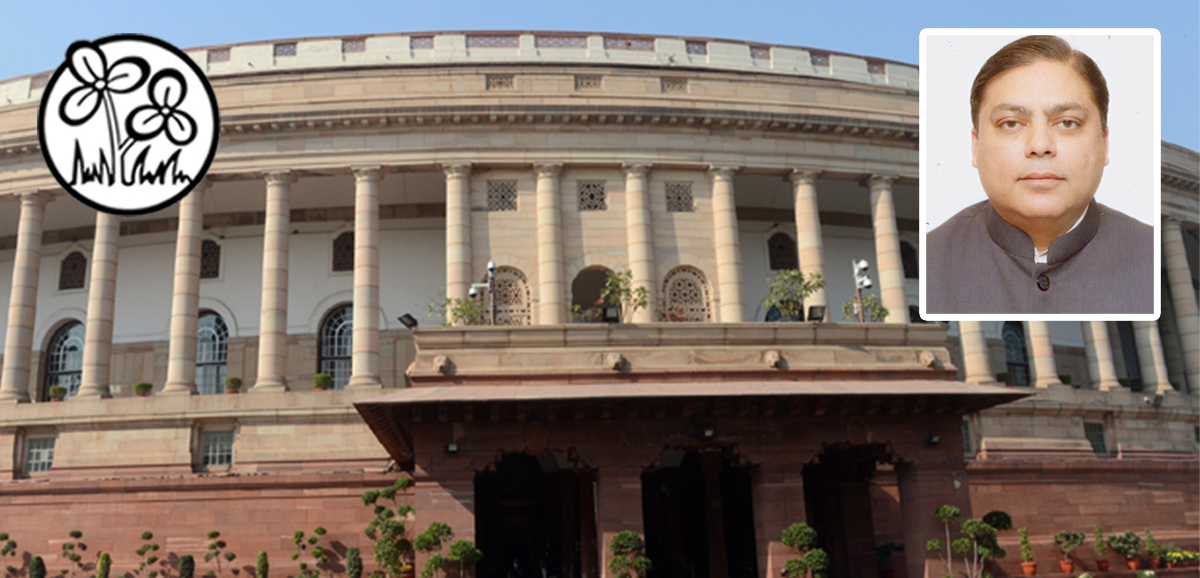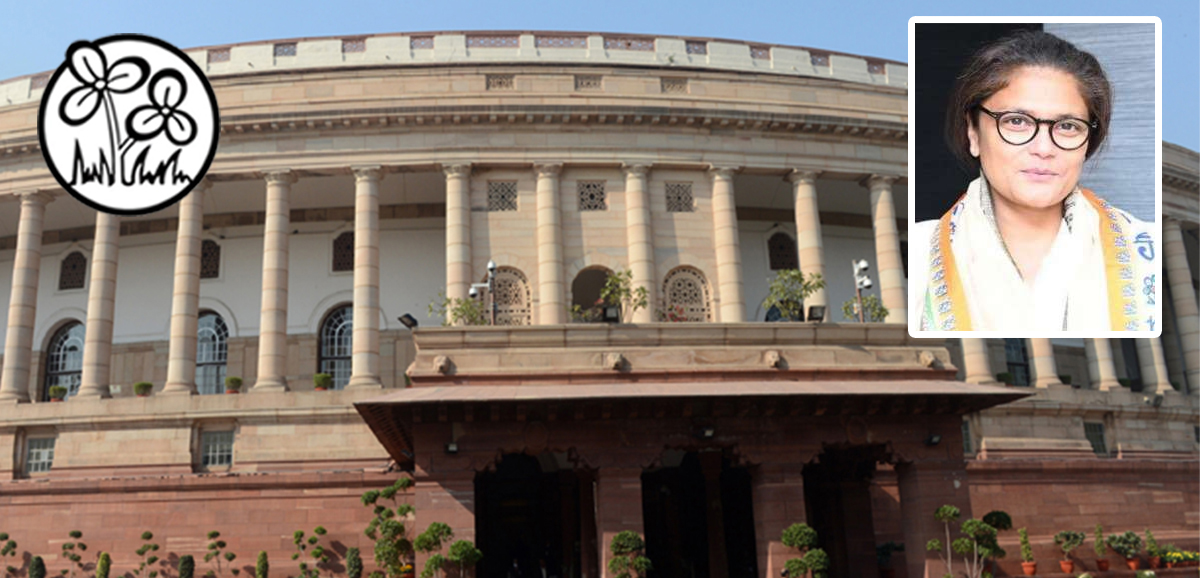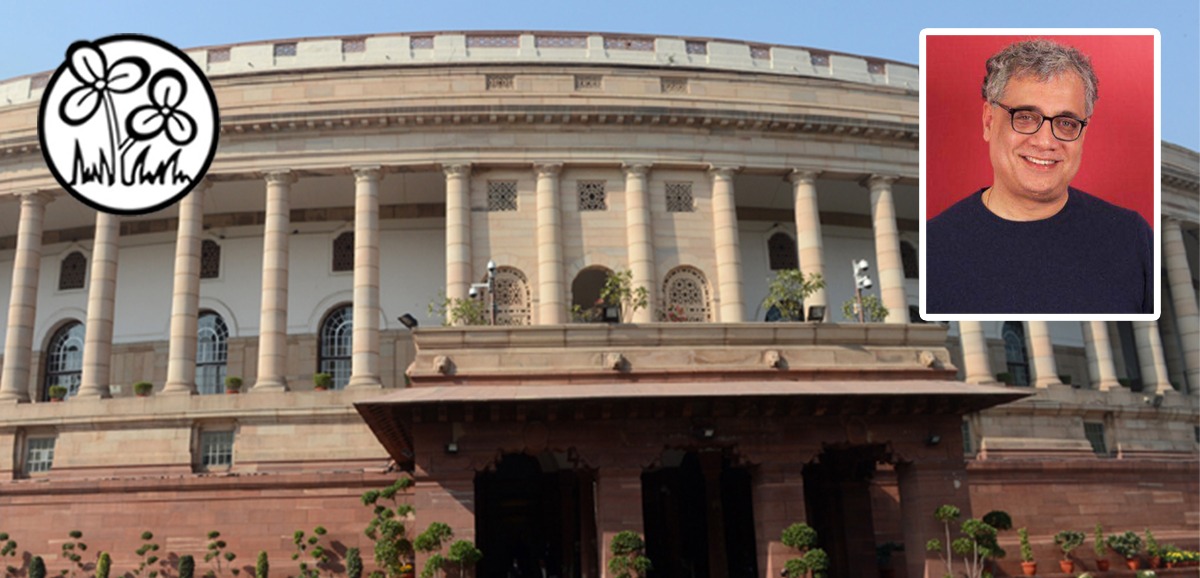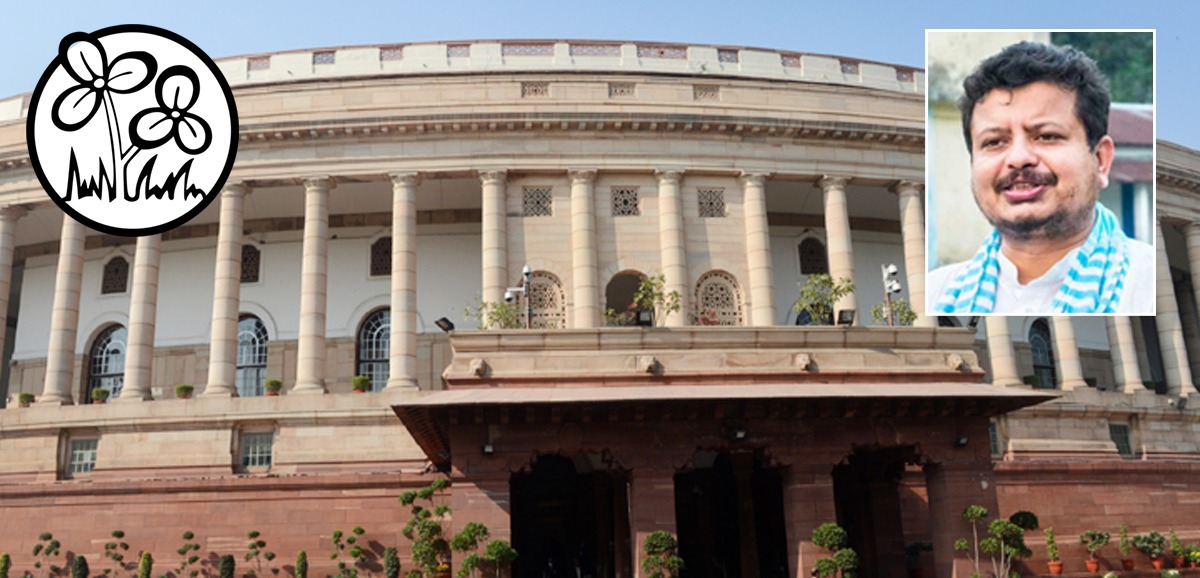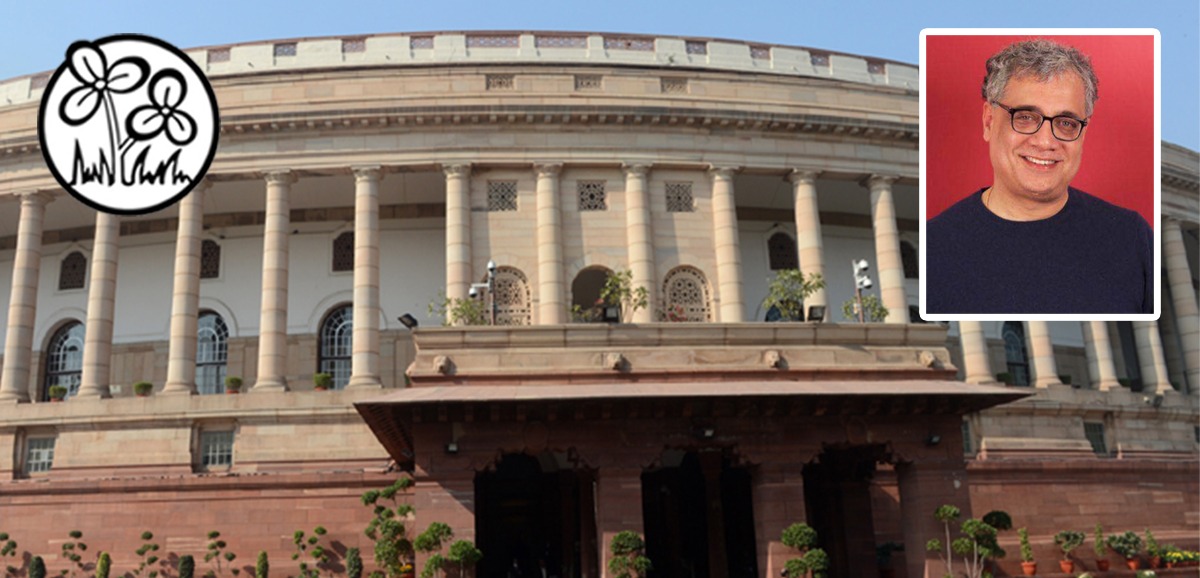Sir, I stand to make my speech, speaking on the Budget for the All India Trinamool Congress. As an MP from Bengal, this is a special time to be speaking. Last week, history was being made in my State. Captains of industry, thought leaders, heads of missions of 40 countries and leading entrepreneurs from across the world were drawn to Bengal for the two day Bengal Global Business Summit. Last week, many path-breaking projects were announced, from AI to tourism, from steel to energy to telecom. About a mammoth of Rupees four lakh plus crores in new investments and tens of thousands of prospective jobs made the headlines. One of the world’s biggest industrialists said this at the Bengal Global Business Summit in Kolkata- “Now Bengal is also witnessing a renaissance in economy and business… and no power on earth can stop Bengal’s resurgence.” Yes, Madam, Bengal means business. Now, let me dissect the below par Union Budget presented last week. India has more than 50 per cent of its population below the age of 25 years and more than 65 per cent, below the age of 35. Now the question is whether the country looks upon this population as a liability or as a resource. This is the basic question which the Budget must deal upon. In dark times, will there also be singing? Yes, there will also be singing; there will be singing about the dark times. The hon. Finance Minister has just left. The previous Budget presented by her in July 2024 after the Lok Sabha election had accorded priority to employment and skill development, given the nature of the election mandate. The Finance Minister had announced a Prime Minister’s package of five schemes and initiatives to facilitate jobs and internship opportunities for 4.1 crores youth over a five year period with a Central outlay of Rupees two lakh crore. However, this year’s Budget, February 1st, did not refer to the Prime Minister’s package even once. There is not even a single mention of the package. What do we learn? That the Cabinet note on employment-linked incentive scheme is under finalization and several meetings have been held with the Ministry of Labour and the CII to discuss the relationship between capital expenditure and employment generation. In other words, the future of the Scheme looks completely bleak. Now, the Periodic Labour Force Survey (PLFS) – it is a Government data – revealed that in 2023-24, youth unemployment rate, for those aged 15-29 years, had gone up to 10.2 per cent and the unemployment rate among graduates was 13 per cent. The latest Economic Survey data shows that average real earnings of self-employed male workers in India have been decreasing constantly from 2017-18. There is a constant decline. The monthly real wage of male workers, salaried workers, is constantly declining. Surplus labour, inundating the job market, combined with high food inflation have severely squeezed the real incomes and livelihoods of an overwhelming majority of Indian workforce. For a Finance Minister and a Government always telling, Sabka Saath Sabka Vikaas, to overlook this is really, really dangerous. Modi Government’s mammoth * for the last 10 years, has taken a toll on our hard-earned public money. Over the last 10 years, frauds and corporate sharks frittered away; at least, Rs. 12 lakh crore of Rs. 16.11 lakh crore our banking system has written off. Out of this, the nationalised banks alone have written-off more than Rs. 12 lakh crore. When the hon. Finance Minister replies, I will urge upon that she must tell us, tell the House, how much of these written-off loans of nationalised banks have been recovered. Now, we could also compare this Rs. 16.11 lakh crore that has been written-off that disappeared over 10 years with the Union Government budgets for Education where the total expenditure was less than 40 per cent of this, and for Health, where it was less than half. To make up for this lost money, banks charge higher and higher user charges for every little service. The rates for loans go up because banks have suffered at the hands of frauds and fund-siphoning. Now, Madam, the stupefying increase in the wealth of the favoured 10 topmost cronies through favours, rule-tweakening and the low-value sale of high-value national assets during Modi’s Rule has been massive. But the ‘Rs. 12 lakh crore wipe-out’ by nationalised banks may help us understand how the next tier of cronies and beneficiaries gain from the regime. After all, our money in banks did not really disappear. They just hopped on to line the pockets of those who knew their way around in very complex, corrupt and dark times. Now, in 1956, both the Houses deliberated for three months. LIC was formed. The then Prime Minister of the country, Pandit Jawaharlal Nehru, gave from the corpus Rs. 5 crore for the formation of the LIC. The LIC started its journey. Today, LIC means 51,000 crore of rupees. LIC means 30 crore of policyholders. Now, you are allowing 100 per cent FDI. Allowing total freedom and greater access to foreign capital could only retard the orderly growth of the insurance industry with the focus more on profits rather than providing the people and business the much-needed security. Our hon. Chief Minister has written to the Finance Minister last year on August 2nd. She wrote a letter asking her to withdraw the 18 per cent GST on life insurance and health insurance policies. I quote from the letter, “With deep anguish, I am writing to you regarding the imposition of 18 per cent GST on life insurance and health insurance policies and the withdrawal of deductions. The GST is bad because it adversely affects the people’s ability to take care of their basic vital needs. This additional burden may be acting as a deterrent for many individuals from taking new policies or continuing their existing insurance coverage, thereby leaving them vulnerable for unforeseen financial distress.” Now regarding the withdrawal of the GST on health insurances, the Finance Minister is always shifting the onus to the GST Council. Madam, everybody is aware who is in charge of the GST council, who controls the GST council. It is the BJP-ruled States which have the majority in the GST council. Then what is stopping the Finance Minister and her party? The lack of political will is stopping them to roll-back this GST on health insurances. Madam, I was born and brought up in a refugee colony in the added areas of Kolkata. Migrated people, bearing the brunts of partition, had set up these colonies where from our adolescence we learnt that when politics determines our future, we must determine the politics. Political awareness runs in every blood and veins of Bengal in general and these innumerable refugee colonies in particular. Though I don’t have the first-hand experience of the horrors of partition unlike my father, still like many third or fourth generation refugee, I consider my refugee ancestry as one of my greatest badges of honour. This ‘refugee ancestry’ has passed on the political understanding of fighting for legitimate rights. As a trade union activist, fighting for the rightful dues of the working people becomes my duty. You are denying the people of their dues, denying the people of Bengal of their rightful dues. You are denying the MGNREGS workers. They are not in a begging mood anymore as they have realized that this denial is completely political. West Bengal owes a staggering figure of Rs. 1.75 lakh crores. The delay has not only affected the implementation of critical programmes but also created challenges for local governance, particularly, in rural areas that depend heavily on such funds for employment and infrastructure development. Madam, the fight for these funds is necessarily political. We are aware that we may be standing here, but if we shift our position and we shift to the other side, things will fall in place. But Bengal refuses to surrender. Bengal hates to surrender. Bengal will never surrender. Bengal will never bow down. I understand the problem of the Treasury Benches. You cannot fight Mamata Banerjee politically, you cannot match Mamata Banerjee’s good governance, you cannot match Mamata Banerjee’s welfare schemes and hence, you continue to deprive lakhs of our people. The more the deprivation, the sharper and greater will be our resolve, the resolve of our people to fight you in a befitting manner. The resolve finds resonance in the immortal words of the true polymath, who has been our greatest identity. *“It was the greatest Bengali of the last thousand years, Tagore, who said, “Where the mind is without fear and the head is held high; Where knowledge is free; Where the world has not been broken up into fragments by narrow domestic walls; Where words come out from the depth of truth; Where tireless striving stretches its arms toward perfection; Where the clear stream of reason has not lost its way into the dreary desert sand of dead habit; Where the mind is led forward by Thee into ever-widening thought and action — Into that heaven of freedom, my Father, let my country awake.” Now, Madam, as I am a trade union activist, I want to give this august House some important figures. I am not a student of economics, but these are very basic figures. When unorganized workforce in our country goes on increasing, the health of the economy is not in proper shape. Now, let me look into the figures that are available. Figures show that in Africa, 86 per cent of the labourers are in the unorganized sector while 14 per cent are in the organized sector; in Asia Pacific and Arab countries, 68 per cent are in the unorganized sector and 32 per cent in the organized sector; in the Americas, 40 per cent are in the unorganized sector and 60 per cent are in the organized sector; in Europe and Central Asian countries, 26 per cent are in the unorganized sector while 74 per cent are in the organized sector. And now, we now come to vishwaguru India. Let me tell the House, as a trade union activist, we are facing these problems. There are serious implications of this. Ninety-three per cent of the workforce has fallen under the unorganized sector; only seven per cent are organized workers. The organized workers definitely have some statutory benefits, but the unorganized workers are deprived of the statutory benefits. Fifty per cent of the contribution to the GDP of our country comes from the unorganized sector. Only six per cent of them are covered by social security measures. The blood, toil, sweat and tears of these workers are the bulwark of our economy. But the Budget has completly neglected them and has said nothing about them. Now, I want to mention about two schemes. One is the Pradhan Mantri Shram Yogi Maandhan Yojana, PMSYM, a Central scheme and the other is a State scheme of Bengal known as Bina Mulya Samajik Suraksha Yojana, BMSSY. Now, people from the unorganized sector who are covered by the Pradhan Mantri Shram Yogi Maandhan Yojana, PMSYM, have to contribute every month. They have to contribute money every month. In the BMSSY scheme of Mamata Banerjee, they need not contribute a single rupee; the entire money, from the age of 18 to 60 years, is given by the Government. Now, I come to flat figures. In the report up to January, 2025, in Bengal, the number of registrations of unorganized workers made under the Bina Mulya Samajik Suraksha Yojana of Mamata Banerjee is one crore and seventy-six lakh-plus. The number of benefits distributed is 34,94,000, almost 35 lakhs. The amount distributed is Rs. 2,606 crores. Let the Central Government show the political will, take up the responsibility and make the entire contribution for the workers, like Mamata Banerjee is doing, in the Central schemes. Now, Sir, I am a trade union worker and Mr. Prakash here stays in a tea garden in the northern part of Bengal. I will mention some tea-chronology that is very essential to mention here In 2016, when I was a Member of this House, hon. Finance Minister was the then Commerce and Industry Minister. This is the Gazette Notification. The Gazette Notification is dated 28th of January, 2016. Before that, the hon. Prime Minister had gone to Madarihat. He had promised about taking up some sick tea gardens. So, this Gazette Notification on 28th of January mentioned that Birpara, Garganda, Lankapara, Tulsipara, Hantapara, Dumchipara, Dimnima, seven tea gardens, will be taken over by the Tea Board. Within eight months, all these gardens got closed. And it was Mamata Banerjee and the Labour Department who took all the initiative of opening these tea gardens. 2016 was the Assembly elections of Bengal! Now come to 2021-22 Budget. In the Budget, thousand crores announced for Assam and Bengal tea gardens. I don’t know about Assam, but as far as Bengal’s experience is concerned, not a single penny has reached us. Now, this year, when the Budget has been announced, their tea imports are hampering us. Such problems like Central Government’s decision of plucking dates; damage of 7 per cent tea crop are also there. There is discussion in the tea garden. Common workers are discussing in the tea garden, ‘Oh, this year is 2025; so, in this Budget, nothing will come. Bengal’s Assembly election is in 2026. So, in 2026, definitely, you will have some promises, some jumlas, about the tea gardens’. But the results will come out in the month of May. Next year, when Mamata Banerjee becomes the Chief Minister of West Bengal for the fourth consecutive time, we will be back here in the House and we will not raise slogans. We will be raising people’s issues. Now, Madam, the fight against the anti-people policies will intensify. The fight against discrimination of Bengal will intensify. This regime will try to suppress all truth by all possible means. I will take half a minute, Madam. This regime will try to suppress all possible truth by all possible means. There will be conspiracies to bury Bengal into oblivion. But the boys of Bengal cannot be choked. The boys of Bengal cannot be stifled. The people of Bengal, under the leadership of Mamata Banerjee, will give a befitting rebuff to the anti-people policies. The fight against the anti-people policies will intensify. The fight against the discrimination of Bengal will intensify. This regime will try to suppress all truth by all possible means. There will be conspiracies to bury Bengal and Bengalis into oblivion. But, our voice cannot be choked. Our voice cannot be stifled. Bengal, under the leadership of Mamata Banerjee, will give a fitting rebuff to the anti-people policies of the Government. The people, united under Mamata Banerjee, shall always be victorious. Jai Bangla!
